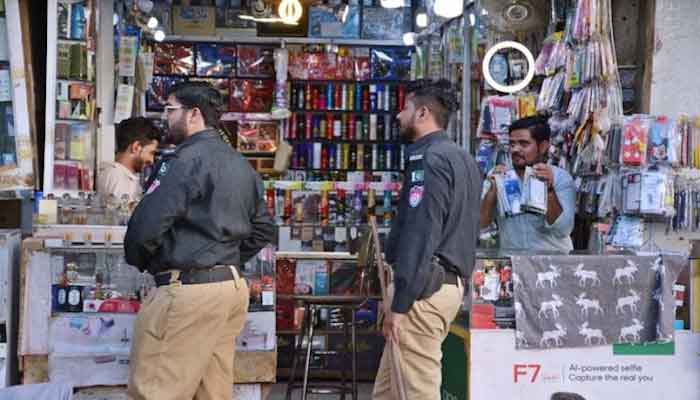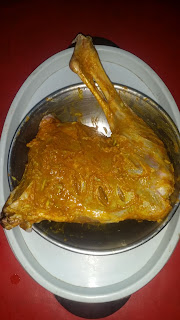Today is the Sunday,
The 8th of August 2021 ,
The 28th of Zilhij 1442H
Till the Sunset ( 7:12 pm ; Karachi ☠️)
31°C / 28°C ( Google)
And this is my the Sunday Blog № 279 ( Two Hundred and Seventy Nine ) .
So this the Last Sunday of the Old Lunar year 1442 H
Happy New Year in Advance ...
Sindh announces revised COVID-19 curbs starting August 9


The Sindh government, bringing an end to a nine-day lockdown, on Sunday announced revised COVID-19 restrictions for the province, as the country battles the fourth wave of the pandemic.
The new restrictions are set to take effect on Monday, August 9, and will last till August 31.
Under the revised curbs, the following will apply:
- Market and business activities may continue till 8pm. This includes standalone grocery stores, fish and meat shops, vegetable and fruit vendors, e-commerce, and bakeries.
- Essential services allowed to open longer. These include pharmacies, medical facilities, vaccination centres, petrol pumps, milk shops, and tandoors.
- Businesses to remain closed on Fridays and Sundays.
- Indoor dining will not be allowed.
- Outdoor dining is allowed for a maximum of 300 people till 10pm under strict coronavirus safety precautions.
- Takeaway and home delivery are allowed 24/7, subject to strict adherence to safety measures with staff and delivery personnel fully vaccinated.
- Indoor weddings banned.
- Outdoor weddings allowed with a maximum of 300 guests till 10pm with strict enforcement of safety protocols.
- Shrines to remain closed.
- Cinemas to remain closed.
- Indoor gatherings, including cultural, musical, religious events prohibited.
- Outdoor gatherings allowed for a maximum of 300 guests with strict enforcement of safety protocols.
- Contact sports banned.
- Gyms to allow only vaccinated individuals.
- Offices to only call 50% staff to work.
- Public transport to run on sanctioned routes with 50% occupancy and staff fully vaccinated. Snacks are not allowed onboard the vehicles.
- Railway services to continue with 50% occupancy, subject to enforcement of strict safety protocols and vaccination of all staff.
- Amusement parks, swimming pools and water sports facilities to remain closed.
- Public parks to remain open subject to the following of safety measures.
- Tourism activities to only be allowed for vaccinated individuals.
- Domestic airlines to no longer serve meals or snacks.
- Wearing of masks compulsory at all public places.
'Stricter lockdown to be enforced if cases rise'
PPP leader Nasir Hussain Shah, speaking on Geo News programme "Naya Pakistan" said that if cases continue to rise, the provincial government will impose a partial lockdown once more.
He claimed that due to the nine-day lockdown period, a drop in cases has been witnessed.
Shah regretted that the provincial government, "instead of being supported, is criticised".
He said that all decisions taken by Sindh were made keeping in view recommendations by the National Command and Operation Centre.
The PPP leader said that if need be, a stricter lockdown will be enforced, adding that it was a tough task for the government to get the public to strictly follow coronavirus safety protocols.
Speaking of Muharram, which may begin on Tuesday, he said that indoor majalis will be allowed, subject to social distancing and wearing of masks.
School reopening and inter exams
Earlier in the day, the Sindh education minister Sardar Ali Shah announced that schools in the province will remain closed till August 19.
Shah said the decision had been taken to facilitate students.
He said that while the provincial government will monitor the coronavirus situation in 10 days till August 19, schools will remain closed as students have difficulties commuting due to Muharram processions.
"Processions are taken out across the province from Muharram 7, which causes problems for students," he said.
MPA Ismail Rahu, meanwhile, said that intermediate exams will resume on August 10.
"Students will not be allowed to carry their mobile phones inside the exam centres," he said, adding that teachers and exam staff will also not be allowed to bring cell phones inside the centre.
Rahu said that the government will not allow cheating at any cost.
Sindh's coronavirus situation
Meanwhile, Sindh's coronavirus situation remains worrisome.
According to a statement from Chief Minister Murad Ali Shah, in the last 24 hours, the province reported 26 deaths, lifting the overall total to 6,215 in the province, and 1,655 new cases, taking the caseload to 400,383.
The new infections emerged after 17,625 tests were conducted, translating to a 9.4% positivity ratio.
Currently 47,752 patients are under treatment, of which 46,216 are in home isolation, 45 at isolation centers and 1,491 at different hospitals.
According to Shah, the condition of 1,308 patients is critical, including 107 that have been put on ventilators.
According to the statement, out of 1,655 new cases, 1,127 were detected from Karachi, including 386 from East, 232 South, 217 Central, 146 Korangi, 81 Malir and 65 West districts.
Hyderabad has 81, Jamshoro 54, Shaheed Benazirabad 42, Badin 39, Sanghar 34, Tharparkar 31, Dadu 29, Thatta 25, Mirpurkhas, Sujawal and Tando Allahyar 22 each, Khairpur 21, Matiari 19, NausheroFeroze 18, Tando Muhammad Khan and Umerkot 12 each, Ghotki five, Kashmore four, and Sukkur two.
According to vaccination data provided in the statement, 8,018,927 vaccines have administered thus far, which means 23.41% of the vaccine eligible population are immunised.
NCOC announces end to lockdown
Although a formal announcement was made today regarding revised restrictions Monday onwards, the NCOC had issued statement a day earlier saying Sindh will lift its lockdown on August 9.
The statement was issued following a joint session which was chaired by Federal Minister for Planning, Development, and Special Initiatives Asad Umar, and attended by Chief Minister Sindh Murad Ali Shah, Special Assistant to Prime Minister on Health Dr Faisal Sultan, Gen Hamood and other team members from NCOC.
The coronavirus situation in Sindh, particularly in Karachi, "was discussed at length", according to the statement.
It said that a need for "better coordination" and an "enhanced interaction at all levels" was emphasised.
It was decided that Sindh would follow the non-pharmaceutical intervention (NPI)- based guidelines the forum had announced for 13 high infection rate cities earlier this week, which include Karachi and Hyderabad.
The forum also recognised the need for a special emphasis on the implementation of safety precautions in view of Muharram and when the lockdown is lifted on August 9.
It was decided that "smart lockdowns" in high disease prevalence areas will be enforced to curb the spread of the virus.
BRITISH MEDICAL JOURNAL No 7070 Volume 313: Page 1448,
7 December 1996.
Introduction
The judgment by the war crimes tribunal at Nuremberg laid down 10 standards to
which physicians must conform when carrying out experiments on human subjects in
a new code that is now accepted worldwide.
This judgment established a new standard of ethical medical behaviour for the post
World War II human rights era. Amongst other requirements, this document
enunciates the requirement of voluntary informed consent of the human subject. The
principle of voluntary informed consent protects the right of the individual to control
his own body.
This code also recognizes that the risk must be weighed against the expected
benefit, and that unnecessary pain and suffering must be avoided.
This code recognizes that doctors should avoid actions that injure human patients.
The principles established by this code for medical practice now have been extended
into general codes of medical ethics.
The Nuremberg Code (1947)
Permissible Medical Experiments
The great weight of the evidence before us to effect that certain types of medical
experiments on human beings, when kept within reasonably well-defined bounds,
conform to the ethics of the medical profession generally. The protagonists of the
practice of human experimentation justify their views on the basis that such
experiments yield results for the good of society that are unprocurable by other
methods or means of study. All agree, however, that certain basic principles must
be observed in order to satisfy moral, ethical and legal concepts:
1. The voluntary consent of the human subject is absolutely essential. This
means that the person involved should have legal capacity to give consent;
should be so situated as to be able to exercise free power of choice, without
the intervention of any element of force, fraud, deceit, duress, overreaching,
or other ulterior form of constraint or coercion; and should have sufficient
knowledge and comprehension of the elements of the subject matter involved
as to enable him to make an understanding and enlightened decision. This
latter element requires that before the acceptance of an affirmative decision
by the experimental subject there should be made known to him the nature,
duration, and purpose of the experiment; the method and means by which it is
to be conducted; all inconveniences and hazards reasonably to be expected;
and the effects upon his health or person which may possibly come from his
participation in the experiment.
The duty and responsibility for ascertaining the quality of the consent rests
upon each individual who initiates, directs, or engages in the experiment. It is
a personal duty and responsibility which may not be delegated to another with
impunity.
2. The experiment should be such as to yield fruitful results for the good of
society, unprocurable by other methods or means of study, and not random
and unnecessary in nature.
3. The experiment should be so designed and based on the results of animal
experimentation and a knowledge of the natural history of the disease or other
problem under study that the anticipated results justify the performance of the
experiment.
4. The experiment should be so conducted as to avoid all unnecessary physical
and mental suffering and injury.
5. No experiment should be conducted where there is an a priori reason to
believe that death or disabling injury will occur; except, perhaps, in those
experiments where the experimental physicians also serve as subjects.
6. The degree of risk to be taken should never exceed that determined by the
humanitarian importance of the problem to be solved by the experiment.
7. Proper preparations should be made and adequate facilities provided to
protect the experimental subject against even remote possibilities of injury,
disability or death.
8. The experiment should be conducted only by scientifically qualified persons.
The highest degree of skill and care should be required through all stages of
the experiment of those who conduct or engage in the experiment.
9. During the course of the experiment the human subject should be at liberty to
bring the experiment to an end if he has reached the physical or mental state
where continuation of the experiment seems to him to be impossible.
10.During the course of the experiment the scientist in charge must be prepared
to terminate the experiment at any stage, if he has probable cause to believe,
in the exercise of the good faith, superior skill and careful judgment required
of him, that a continuation of the experiment is likely to result in injury,
disability, or death to the experimental subject.
For more information see Nuremberg Doctor's Trial, BMJ 1996;313(7070):1445-75.



































































































No comments:
Post a Comment